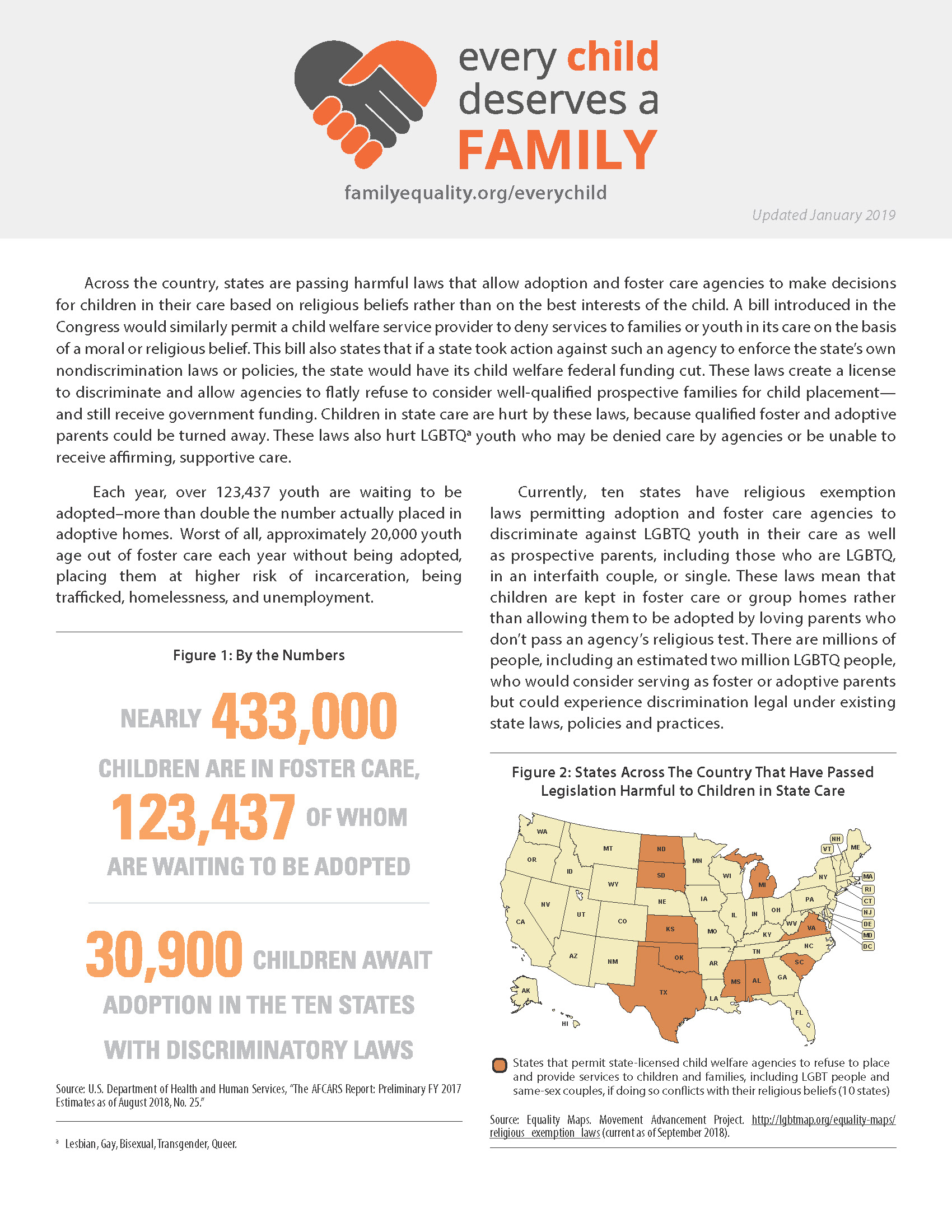The Bottom Line
This policy brief, authored by MAP and the Family Equality Council, in partnership with the Child Welfare League of America (CWLA) and the National Association of Social Workers (NASW), offers a snapshot of the impact of discriminatory foster and adoption laws on the thousands of children waiting to be adopted in the seven states where these laws currently exist, the high stakes of passing similar laws in other states, and offers recommendations for supporting children in care.
Recommended citation:
Movement Advancement Project and the Every Child Deserves a Family Coalition. January 2019.
Kids Pay the PRice Policy Brief.
https://www.lgbtmap.org/file/Brief-Kids-Pay-Price-January-2019.pdf (date of access).


